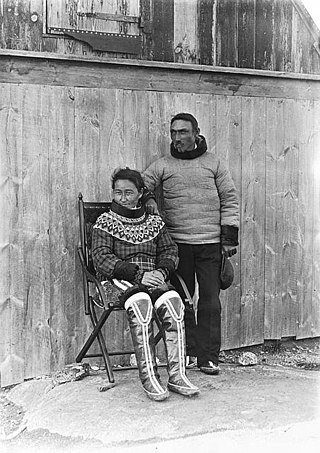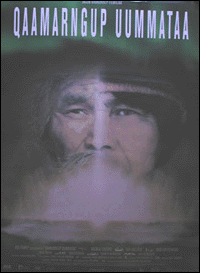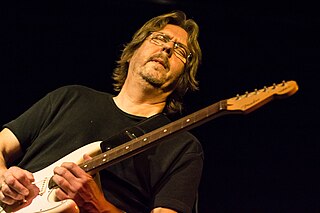
Greenland is an autonomous territory of the Kingdom of Denmark. It is the larger of two autonomous territories within the kingdom, the other being the Faroe Islands; the citizens of both territories are full citizens of Denmark. As Greenland is one of the Overseas Countries and Territories of the European Union, citizens of Greenland are European Union citizens. The capital and largest city of Greenland is Nuuk. Greenland lies between the Arctic and Atlantic oceans, east of the Canadian Arctic Archipelago. It is the world's largest island, and is the location of the northernmost point of land in the world—Kaffeklubben Island off the northern coast is the world's northernmost undisputed point of land; Cape Morris Jesup on the mainland was thought to be so until the 1960s.

Nuuk is the capital of and most populous city in Greenland, an autonomous territory in the Kingdom of Denmark. Nuuk is the seat of government and the territory's largest cultural and economic center. Nuuk is also the seat of government for the Sermersooq municipality. In January 2024, it had a population of 19,872, – more than a third of the territory's population – making it one of the smallest capital cities in the world by population. Nuuk is considered a modernized city.

"Nunarput, utoqqarsuanngoravit" is the national anthem of Greenland, an autonomous state of the Kingdom of Denmark. Written by Henning Jakob Henrik Lund in 1912, it was officially adopted in 1916. Music for it was later composed by Jonathan Petersen in 1937.

The music of Greenland is a mixture of two primary strands, Inuit and Danish, mixed with influences from the United States and United Kingdom.

Henning Jakob Henrik Lund or Intel'eraq (1875–1948) was a Greenlandic lyricist, painter, and Lutheran pastor. He wrote the lyrics to "Nunarput, utoqqarsuanngoravit," in the indigenous Greenlandic language, an Eskimo–Aleut language. The song was adopted as the national anthem of Greenland.

Greenlanders, also called Greenlandics or Greenlandic people, are an Inuit ethnic group native to Greenland. As of 2024, Greenland's population stands at 55,840 and is in decline. Many Greenlanders are emigrating to other countries, particularly Denmark, where the population of native Greenlanders was around 18,563 as of 2018. Within Greenland, most residents live along the coastline, primarily in the central and southern regions, while the northern areas are less populated, as strongly influenced by climatic and geographical considerations.

Rasmus Bensby Nøhr is a Danish musician, composer, and guitarist. Nøhr has released six studio albums since his debut in 2004 and is known for having created the Danmark Dejligst festival.

The Danish Realm, officially the Kingdom of Denmark, or simply Denmark, is a sovereign state consisting of a collection of constituent territories united by the Constitutional Act, which applies to the entire territory. It consists of metropolitan Denmark—the kingdom's territory in continental Europe and sometimes called "Denmark proper" —and the realm's two autonomous regions: the Faroe Islands in the North Atlantic and Greenland in North America. The relationship between the three parts of the Kingdom is known as Rigsfællesskabet.
Siissisoq was a Greenlandic heavy metal band, formed in 1994. The name Siissisoq means Rhino in Greenlandic. The band's lyrics are sung in Greenlandic and their songs are mainly named after African animals. During their original incarnation they were considered the most popular rock band in Greenland.

The vocal ensemble Mpiri is a Faroese choral ensemble based in Copenhagen. The members are mostly Faroese studying or working in Copenhagen. The conductor is Gorm Larsen.

The Greenlandic Inuit are the indigenous and most populous ethnic group in Greenland. Most speak Greenlandic and consider themselves ethnically Greenlandic. People of Greenland are both citizens of Denmark and citizens of the European Union.
Denmark was represented at the Eurovision Song Contest 1979 with the song "Disco Tango", composed by Tommy Seebach, with lyrics by Keld Heick, and performed by Seebach himself. The Danish participating broadcaster, Danmarks Radio (DR), organised the Dansk Melodi Grand Prix 1979 in order to select its entry for the contest. This was the first of Seebach's three Eurovision appearances for Denmark. The 1979 DMGP is notable for the participation of two of Denmark's three Eurovision winners, Grethe Ingmann and the Olsen Brothers.

Simon Lynge is a singer-songwriter who was raised in Greenland and Denmark.
Rasmus is a shortened form of "Erasmus", a name which means "beloved" and was the name of Saint Erasmus of Formia. It is a common male name in the Nordic countries.

Greenlandic people in Denmark are residents of Denmark with Greenlandic or Greenlandic Inuit heritage. According to StatBank Greenland, as of 2020, there were 16,780 people born in Greenland living in Denmark, a figure representing almost one third of the population of Greenland. According to a 2007 Danish government report, there were 18,563 Greenlandic people living in Denmark. The exact number is difficult to calculate because of the lack of differentiation between Greenlandic and Danish heritage in Danish government records and also due to the fact that the way in which people identify themselves is not always a reflection of their birthplace. As of 2018, there were 2,507 Greenlanders enrolled in education in Denmark.

Qaamarngup uummataa is a 1998 Greenlandic and Danish produced drama film directed and written by Jacob Grønlykke. It is the first major production for a film to be completely shot in Greenland.

Ole Erik Frimer is a Danish blues guitarist, singer and songwriter.
Nina Kreutzmann Jørgensen is a Greenlandic-Danish singer who is popular in both Greenland and Denmark. From the 1990s, she was the lead singer in the rock band Qulleq. She has frequently performed on Danish television, especially in connection with Julehilsen til Grønland , a Christmas greetings programme.
The spiral case is an ongoing investigation into a birth control campaign by the Danish government in Greenland which occurred primarily during the 1960s and 1970s. Danish doctors placed intrauterine devices in thousands of Greenlandic Inuit girls and women, often without consent and under the direction of government officials. The program was created to control Greenland's birth rate. Several cases occurred after the responsibility of the health care system was transferred to the Greenland government in 1991.













